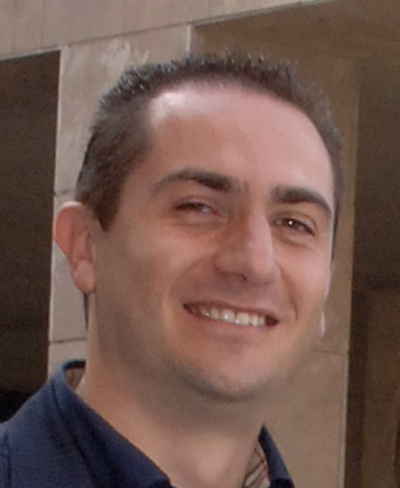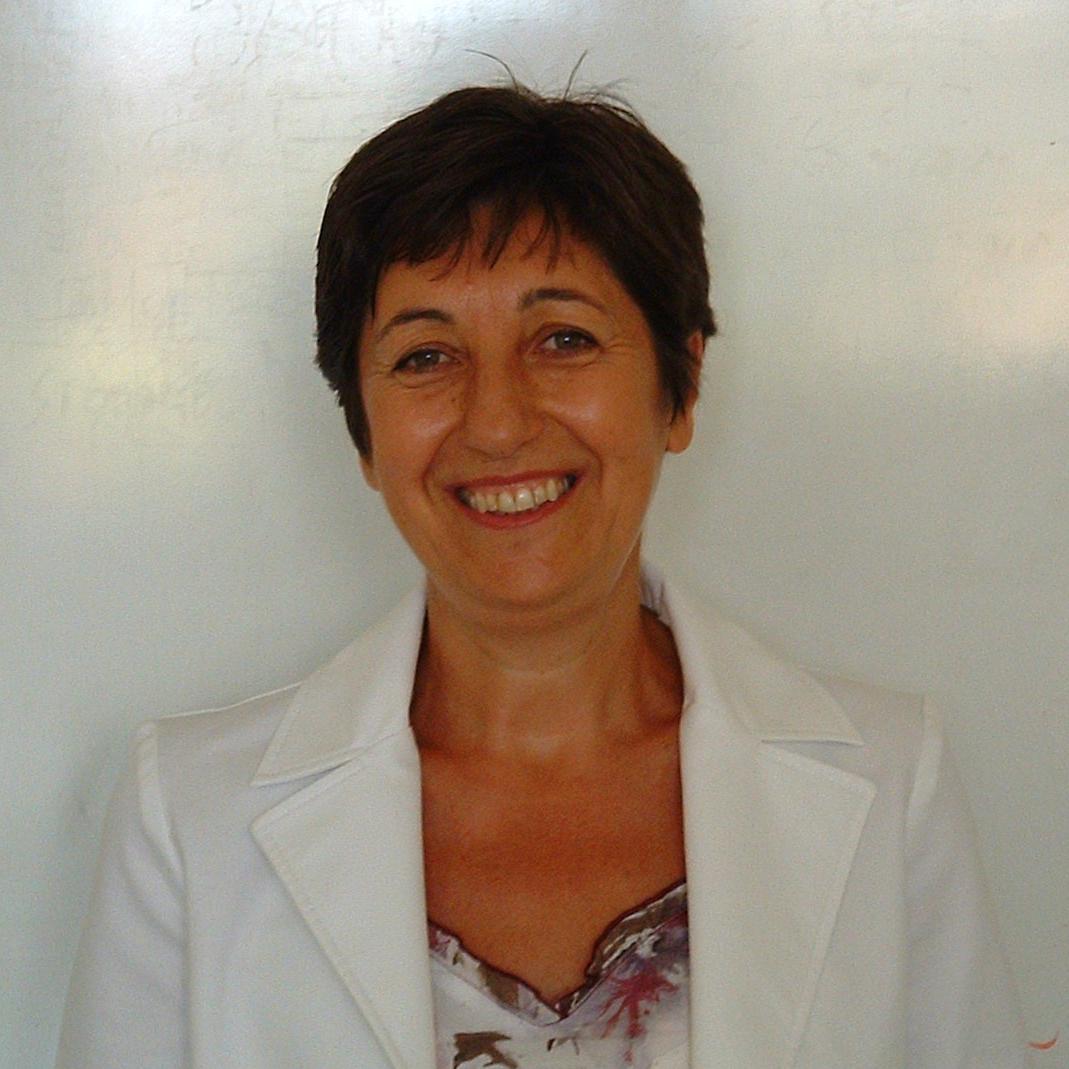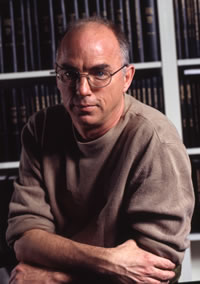Architecture - Experts
 Leonardo Candela is a researcher at the Networked Multimedia Information Systems (NMIS) Laboratory of the Institute of Information Science and Technologies, National Research Council of Italy (CNR-ISTI), the co-ordinating partner of DL.org. He joined the NMIS team in 2001 after graduating in Computer Science at the University of Pisa, where he completed his PhD in Information Engineering in 2006. With research interests spanning Digital Library [Management] Systems and Architectures, Digital Libraries Models, Distributed Information Retrieval, and Grid Computing, he has been involved in a number of key initiatives, such as CYCLADES, Open Archives Forum, DELOS, DILIGENT, DRIVER and D4Science projects. He was an active member of the DELOS Working Group on the Digital Library Reference Model. He is currently a member of the OAI-ORE (Open Archive Initiative – Open Re-use) Liaison Group and also an expert in DL.org’s Content Working Group.
Leonardo Candela is a researcher at the Networked Multimedia Information Systems (NMIS) Laboratory of the Institute of Information Science and Technologies, National Research Council of Italy (CNR-ISTI), the co-ordinating partner of DL.org. He joined the NMIS team in 2001 after graduating in Computer Science at the University of Pisa, where he completed his PhD in Information Engineering in 2006. With research interests spanning Digital Library [Management] Systems and Architectures, Digital Libraries Models, Distributed Information Retrieval, and Grid Computing, he has been involved in a number of key initiatives, such as CYCLADES, Open Archives Forum, DELOS, DILIGENT, DRIVER and D4Science projects. He was an active member of the DELOS Working Group on the Digital Library Reference Model. He is currently a member of the OAI-ORE (Open Archive Initiative – Open Re-use) Liaison Group and also an expert in DL.org’s Content Working Group.
 Donatella Castelli, a senior researcher at the Institute of Information Science and Technologies, National Research Council of Italy (CNR-ISTI), serves as the scientific co-ordinator of DL.org. With a research focus on Digital Library content, and architecture modeling, interoperability and research infrastructures, she has played a key role in several national and European projects in these fields. In the DELOS Network of Excellence she led activities dedicated to the DELOS Digital Library Reference Model and has served as the scientific co-ordinator of D4Science. She has also been involved in the technological design of DRIVER-II and European Film Gateway infrastructures.
Donatella Castelli, a senior researcher at the Institute of Information Science and Technologies, National Research Council of Italy (CNR-ISTI), serves as the scientific co-ordinator of DL.org. With a research focus on Digital Library content, and architecture modeling, interoperability and research infrastructures, she has played a key role in several national and European projects in these fields. In the DELOS Network of Excellence she led activities dedicated to the DELOS Digital Library Reference Model and has served as the scientific co-ordinator of D4Science. She has also been involved in the technological design of DRIVER-II and European Film Gateway infrastructures.
 Jan Molendijk is a publisher and consultant in the publishing industry with more than ten years of experience in both publishing and Information & Communication Technologies (ICT). Jan has a strong focus on online publishing business models that deliver results. Since March 2010 he serves as Technical and Operations Director in Europeana, a European initiative funded by the eContentPlus Programme to develop a multi-lingual, singel access-point to European cultural heritage.
Jan Molendijk is a publisher and consultant in the publishing industry with more than ten years of experience in both publishing and Information & Communication Technologies (ICT). Jan has a strong focus on online publishing business models that deliver results. Since March 2010 he serves as Technical and Operations Director in Europeana, a European initiative funded by the eContentPlus Programme to develop a multi-lingual, singel access-point to European cultural heritage.
 Pasquale Pagano is a senior researcher at Networked Multimedia Information Systems (NMIS) Laboratory of the Institute of Information Science and Technologies, National Research Council of Italy (CNR - ISTI). Dr Pagano has a strong background on digital library distributed architectures. He was one of the early developers of the ERCIM Technical Reference Digital Library (ETRDL) and has participated in the design of the most relevant DL systems developed by CNR, leading the design and development activity of the FP5 project SCHOLNET, designing the Virtual Library component in the FP5 project CYCLADES and participating in the design of the FP6 project DRIVER. Dr Pagano has served the DILIGENT project as Technical Support Manager. He is currently the Technical Director of the D4Science project, and is also involved in DRIVER II and BELIEF II.
Pasquale Pagano is a senior researcher at Networked Multimedia Information Systems (NMIS) Laboratory of the Institute of Information Science and Technologies, National Research Council of Italy (CNR - ISTI). Dr Pagano has a strong background on digital library distributed architectures. He was one of the early developers of the ERCIM Technical Reference Digital Library (ETRDL) and has participated in the design of the most relevant DL systems developed by CNR, leading the design and development activity of the FP5 project SCHOLNET, designing the Virtual Library component in the FP5 project CYCLADES and participating in the design of the FP6 project DRIVER. Dr Pagano has served the DILIGENT project as Technical Support Manager. He is currently the Technical Director of the D4Science project, and is also involved in DRIVER II and BELIEF II.
 Axel Poigné is senior researcher at the Fraunhofer Institute Intelligent Analysis and Information Systems (IAIS), Department of Knowledge Discovery. He graduated in Electrical Engineering and then moved to Computer Science for a PhD. He has published in the areas of Theory of Programming Languages, Abstract Data Types, Concurrency Theory, Synchronous Programming for Safety-Critical Systems, and Adaptronics. At present, he is involved in defining the ICT infrastructure for European Biodiversity Research with the ESFRI Project LifeWatch.
Axel Poigné is senior researcher at the Fraunhofer Institute Intelligent Analysis and Information Systems (IAIS), Department of Knowledge Discovery. He graduated in Electrical Engineering and then moved to Computer Science for a PhD. He has published in the areas of Theory of Programming Languages, Abstract Data Types, Concurrency Theory, Synchronous Programming for Safety-Critical Systems, and Adaptronics. At present, he is involved in defining the ICT infrastructure for European Biodiversity Research with the ESFRI Project LifeWatch.
Sandra Payette, Executive Director of Fedora Commons
 Sandra Payette is the Executive Director of Fedora Commons, a non-profit organisation whose purpose is to provide sustainable open-source technologies to help individuals and organisations create, manage, publish, share, and preserve digital content upon which we form our intellectual, scientific, and cultural heritage. Fedora Commons evolved from the Fedora Project that Sandy co-directed from 2001. This project developed innovative open-source repository software that combines content management, web services, and semantic technologies. Fedora is based on Sandy’s original research known as the Flexible Extensible Digital Object and Repository Architecture (Fedora). Sandy is also a leader of digital library research and development in the Information Science program at Cornell University. Her research interests include scholarly communication, digital libraries, digital preservation, information network overlays and web information systems, information modelling, metadata, and policy enforcement for digital content. She served as a member of the Architecture Working Group until October 2009.
Sandra Payette is the Executive Director of Fedora Commons, a non-profit organisation whose purpose is to provide sustainable open-source technologies to help individuals and organisations create, manage, publish, share, and preserve digital content upon which we form our intellectual, scientific, and cultural heritage. Fedora Commons evolved from the Fedora Project that Sandy co-directed from 2001. This project developed innovative open-source repository software that combines content management, web services, and semantic technologies. Fedora is based on Sandy’s original research known as the Flexible Extensible Digital Object and Repository Architecture (Fedora). Sandy is also a leader of digital library research and development in the Information Science program at Cornell University. Her research interests include scholarly communication, digital libraries, digital preservation, information network overlays and web information systems, information modelling, metadata, and policy enforcement for digital content. She served as a member of the Architecture Working Group until October 2009.
Robert Sanderson, Lecturer in Computer Science, University of Liverpool, UK
 Robert Sanderson is currently a lecturer in Computer Science at the University of Liverpool. He completed his interdisciplinary PhD in Information Science and Medieval French in 2003, and has been working on the Cheshire Information Retrieval System in conjunction with the University of California, Berkeley since 2000. He is the Senior Editor for the SRU protocol specification. He is a member of the OAI-ORE (Open Archives Initiative - Object Reuse & Exchange) Technical Committee.
Robert Sanderson is currently a lecturer in Computer Science at the University of Liverpool. He completed his interdisciplinary PhD in Information Science and Medieval French in 2003, and has been working on the Cheshire Information Retrieval System in conjunction with the University of California, Berkeley since 2000. He is the Senior Editor for the SRU protocol specification. He is a member of the OAI-ORE (Open Archives Initiative - Object Reuse & Exchange) Technical Committee.
Thornton Staples, Director of Community Strategy and Alliances Fedora Commons
 Thornton Staples is Director of Community Strategy and Alliances Fedora Commons. He has been involved with the architecture of large complex digital projects for most of the last 20 years. As the Project Director at the Institute for Advanced Technology in the Humanities, he worked with well-know scholars to create such projects at The Rossetti Archive and The Valley of the Shadow. As the CIO at the National Museum of American Art at the Smithsonian, he worked with museum curators and artists to create fully realised digital versions of exhibitions, as well as to put the entire collection online for public access. Most recently, as the Director of R&D at the University of Virginia Library, he was simultaneously the co-director of the Fedora Project and the architect for a Fedora-based digital library that included a variety of digital surrogates of library collections, intended to provide an infrastructure to collect the next generation of digital scholarly projects. Recently, his consulting activities have included working with organisations as diverse as ICPSR and WGBH to create the digital architectures for managing their collections on line, as well as developing and implementing a prototype for a digital library for the American School for Classical Studies at Athens, which will include archeological excavation data with library and archive collections. He served on the Architecture Working Group until October 2009.
Thornton Staples is Director of Community Strategy and Alliances Fedora Commons. He has been involved with the architecture of large complex digital projects for most of the last 20 years. As the Project Director at the Institute for Advanced Technology in the Humanities, he worked with well-know scholars to create such projects at The Rossetti Archive and The Valley of the Shadow. As the CIO at the National Museum of American Art at the Smithsonian, he worked with museum curators and artists to create fully realised digital versions of exhibitions, as well as to put the entire collection online for public access. Most recently, as the Director of R&D at the University of Virginia Library, he was simultaneously the co-director of the Fedora Project and the architect for a Fedora-based digital library that included a variety of digital surrogates of library collections, intended to provide an infrastructure to collect the next generation of digital scholarly projects. Recently, his consulting activities have included working with organisations as diverse as ICPSR and WGBH to create the digital architectures for managing their collections on line, as well as developing and implementing a prototype for a digital library for the American School for Classical Studies at Athens, which will include archeological excavation data with library and archive collections. He served on the Architecture Working Group until October 2009.
Bram van der Werf, Technical Director of Europeana
 Bram van der Werf is Technical Director at Europeana responsible for the development and build of the Europeana prototype and the operational service under Europeana v1.0. Prior to his appointment at Europeana he was a management consultant expert/advisor on Software Development Best Practices for Open Source and Collaborative Technologies. He has many years experience managing large scale projects and organizations on the edge of users, technology practitioners and implementing state of the art technologies. Over the years he held several Director and Senior Management positions in Software and Services Industry with companies such as Rational Software, Progress Software and IBM Application Management Services. His focal points of knowledge and business experience are Quality and Risk Management.
Bram van der Werf is Technical Director at Europeana responsible for the development and build of the Europeana prototype and the operational service under Europeana v1.0. Prior to his appointment at Europeana he was a management consultant expert/advisor on Software Development Best Practices for Open Source and Collaborative Technologies. He has many years experience managing large scale projects and organizations on the edge of users, technology practitioners and implementing state of the art technologies. Over the years he held several Director and Senior Management positions in Software and Services Industry with companies such as Rational Software, Progress Software and IBM Application Management Services. His focal points of knowledge and business experience are Quality and Risk Management.
 Gerhard Weikum is a Research Director at the Max-Planck Institute for Informatics (MPII) in Saarbruecken, Germany, where he is leading the department on databases and information systems. He is also the spokesperson of the International Max-Planck Research School (IMPRS) for Computer Science. Earlier he held positions at Saarland University in Saarbruecken, Germany, at ETH Zurich, Switzerland, at MCC in Austin, Texas, and he was a visiting senior researcher at Microsoft Research in Redmond, Washington. He received his diploma and doctoral degrees from the University of Darmstadt, Germany. Gerhard Research Interests include Distributed information systems, Database performance optimization (automatic tuning) and self-organization (autonomic computing), DB & IR integration (database systems & information retrieval) and information extraction and knowledge harvesting.
Gerhard Weikum is a Research Director at the Max-Planck Institute for Informatics (MPII) in Saarbruecken, Germany, where he is leading the department on databases and information systems. He is also the spokesperson of the International Max-Planck Research School (IMPRS) for Computer Science. Earlier he held positions at Saarland University in Saarbruecken, Germany, at ETH Zurich, Switzerland, at MCC in Austin, Texas, and he was a visiting senior researcher at Microsoft Research in Redmond, Washington. He received his diploma and doctoral degrees from the University of Darmstadt, Germany. Gerhard Research Interests include Distributed information systems, Database performance optimization (automatic tuning) and self-organization (autonomic computing), DB & IR integration (database systems & information retrieval) and information extraction and knowledge harvesting.
DL.org (ICT No. 231551) is funded by the European Commission under Framework Programme 7 (FP7) ICT Programme ![]()

